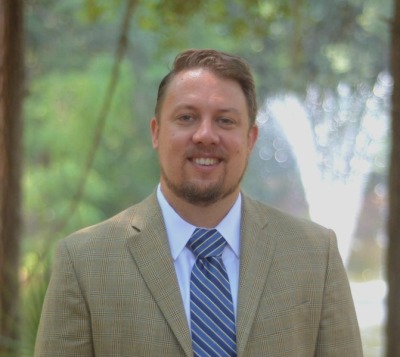How Gene Editing Will Modify the Christian Concept of Spiritual Gifts

Following the recent historic International Summit on Human Gene Editing, held in Washington DC, it has become clear that humanity is on the verge of experiencing a radical technological transformation that will challenge our preconceptions as to what it means to be human. And while these advancements rightly raise questions regarding the ethical application of these emerging technologies they are also challenging preconceived notions regarding theological belief. One place in theology where such technological developments will certainly have a dramatic impact is on the current Christian concept of spiritual gifts.
The present understanding of the theological concept of "spiritual gifts" derives from the Greek words pneumatika (spirits) and chrismata (gifts) that are found in the Bible. These words are plural forms of the words pneumatikon, which means "expression of Spirit," and charisma, which means "expression of grace." The general Christian understanding is that the Holy Spirit gives God's people particular spiritual gifts (special abilities, offices, or manifestations) as a means of grace meant for works of service and to build up the body of Christ.
It is of theological note that most Christians believe that spiritual gifts are God given. Generally, Christians believe that they have no authority over who gets what gifts. But with gene editing becoming widely available in the future such a perception may quickly change.
For example, what if we could genetically modify one another to be more spiritually gifted human beings? Wouldn't people want to be more merciful, more discerning, have better leadership or administration skills, become better teachers, have more knowledge, or even have more faith? Or maybe the more fundamental question is: If we have the ability to enhance ourselves to build up the body of Christ - do we as Christians have a responsibility to do so?
Part of the challenge that is arising with the advancement of emerging technologies, particularly with those like gene editing, is that it is blurring the lines pertaining to preconceived notions of what is "natural" versus "supernatural." Our understanding for much of human history has been that something is only supernatural if it was a characteristic pertaining to God or the unobservable universe. If an attribute pertained to humanity or the visible universe then it was deemed natural.
But another way to envision our theological reality is to observe that the supernatural is beginning to be intertwined with what we view as natural.
It seems logical to me to presume that the Creator is a technological God and that humankind, made in God's image, is a technological cadre of creatures. Moreover it appears that when people are rightly directed, communities and God work toward a common purpose. This might indicate that, through the development of emerging technologies, people are invited, by way of the Holy Spirit, into co-creatorship with God. This would suggest that part of what we are experiencing presently, with the advancement of gene editing, is the sanctification and redemption of humanity, in Christ, through the technology which we have been given as a gift of grace. Human enhancement thus becomes an opportunity for us to contribute to Christ's redemptive purposes as we participate by enhancing ourselves to become more rightly involved in God's Kingdom focused activities.
Of course this doesn't eliminate the possibility that humanity may, from time to time, stray from such sanctification by using the emerging technology for evil. This is a very real possibility. Such risk emphasizes the need for continued accountability that occurs via regular technological summits on advancing technology.
But beyond this, the past failures of human history also demonstrate a need for Christians, who are genuinely seeking to advance virtue in the world, to engage and advocate technological development in ways that advance positive uses of technology for the future. One of those ways just may be the eventual genetic enhancement of ourselves in an effort to build up the body of Christ and to better creation. In that regard we may, in the future, find ourselves asking from both a theological and technological mindset of discipleship: "What gifts do I lack, and what can I tangibly do to remedy that deficiency for the Kingdom of God?"





























